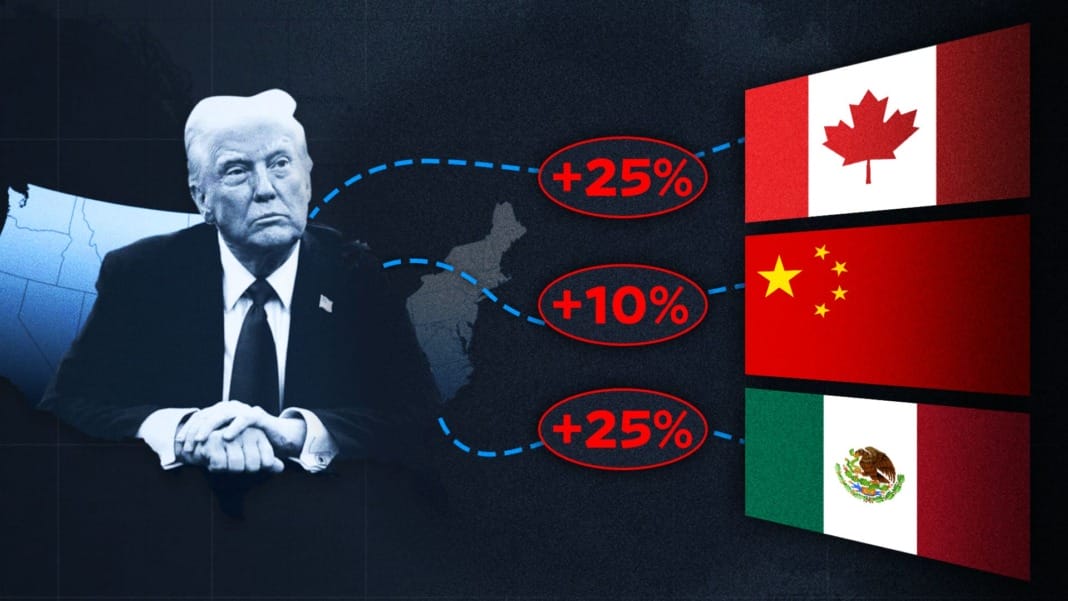You now face higher costs on a range of goods after former President Donald Trump imposed fresh tariffs on imports from Canada, Mexico, and China. Signed into effect on February 1, the executive order sets a 25% tariff on Canadian and Mexican goods, while Chinese imports will face a 10% tax. Additionally, Canadian energy exports to the US will see a lower 10% tariff.
Trump justified these tariffs as a move to “halt the flood of poisonous drugs into the United States,” specifically referencing fentanyl. However, the new policy extends far beyond drug-related measures, impacting technology, agriculture, and retail industries.
Consumers to bear the cost
While Trump insisted the tariffs would “enrich” American citizens, economic experts warn that the real burden will likely fall on consumers. Historically, tariffs have increased prices as businesses pass on higher import costs to shoppers. Essential goods, including electronics, clothing, and fresh produce, are expected to see price hikes in the coming months.
Major tech companies, in particular, may struggle with rising costs, as many rely on Chinese manufacturing for components and assembly. This could lead to more expensive smartphones, laptops, and other consumer electronics. Meanwhile, retailers and food suppliers may adjust prices to offset increased import fees.
The wider economic impact
The move has sparked concerns among business leaders and economists, who fear it could lead to strained trade relations and slower economic growth. Canada and Mexico are two of the US’s largest trading partners, and the 25% tariff could disrupt supply chains and increase operating costs for businesses.
China, which has been in a long-running trade dispute with the US, may retaliate with its tariffs, further escalating tensions. If this happens, American companies exporting to China could face additional challenges, leading to potential job losses in key industries.
As these tariffs take effect, pricing will shift across multiple sectors as businesses and consumers adjust to the new economic landscape.





